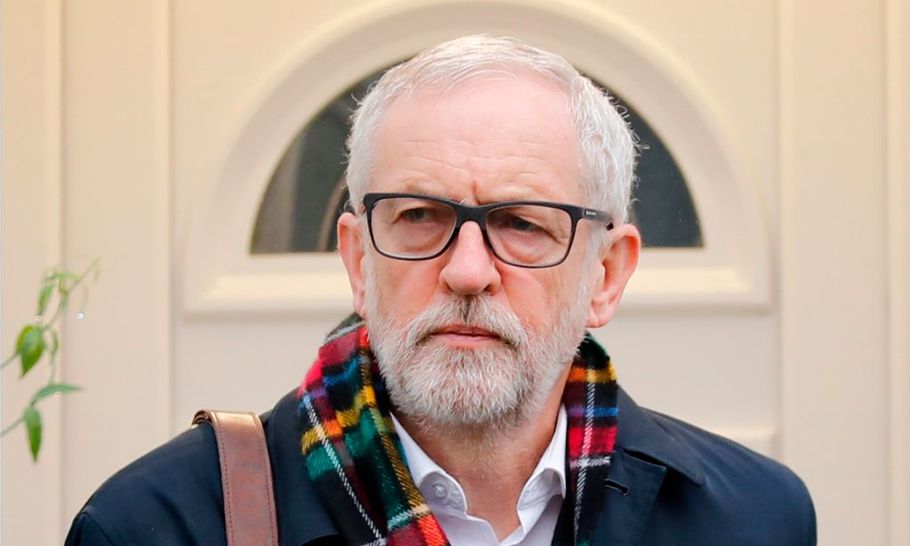What will Corbyn do next?

(TOLGA AKMEN/AFP via Getty Images)
The Labour Party has suffered a historic defeat. Commentators state that the Labour Party must change or face oblivion. It is understandable that such views gain currency a few days after the election. Are they right?
Labour’s critics argue that the defeat is so devastating that even the hard left must realise that the party must move towards the centre. The optimists believe “there will always be a Kinnock who will take on and defeat the Militants”. Well, this was done in 1985, but the chances now are quite remote.
One of the major differences is that the Militant tendency had only Liverpool under its thumb. Elsewhere, their influence was more limited. The landscape is considerably different now. The Labour Party has been properly hijacked. The militants have grown roots, but there aren’t any Kinnock’s willing to cut those roots away.
It is clear what happened in the last four years since the 2015 Labour leadership election. Due to a number of lucky incidents (even the proposal of Corbyn’s candidacy by the Parliamentary Party was a fairly unlikely thing), and thanks to the three quid rule introduced by a son of an ex-Militant thinker, Corbyn and his close collaborators managed to mould the Labour Party in their own image.
The party has now got half a million members, the large majority of them supports the extreme left (83.8 per cent of the three-quidders voted for Corbyn). Where will the moderate vote come from in the next Labour leadership election? Some from a minority of trade unionists, some from card-carrying members and that’s about all.
Why would there be any change whatsoever? Corbyn and his associates have complete control over the National Executive Committee, which is essentially the governing body of the Labour Party. In addition, Momentum controls the whole party apparatus. Why would they want to move towards the centre? Why would they give up their dominant position?
One reason would be to jump before they are pushed. But who will do the pushing? The moderates still possessing some weight will be afraid of damaging their careers. I conclude that nothing will change. The militants will be Militants, and Momentum will not lose its momentum. In fact, they will be better off due to the departure of many Corbyn critics from the Parliamentary Labour Party.
If nothing changes, what will keep the extremists’ spirits high? Could they endure years or possibly decades in the wilderness? Yes, they could — they will not give up the hope. They will feed on the historical inevitability theory. Marx said that the working class will acquire power. Any movement aiming at such an outcome is bound to triumph in the future. When? The timing is immaterial. The capitalist system, as Marx said, is bound to have recurrent economic crises. One of these will be so deep that the downtrodden proletariat will rise all over the world and the socialist paradise will be established here on this Earth.
To summarise the situation and proposing a slight generalisation, I would coin the maxim: once extremists acquire majority in a socialist party they can never be dislodged. Well, never might be too strong a word. I am basing it mostly on the Soviet experience. Lenin managed to hijack the Russian Social Democratic Party in 1898 at the 2nd Congress in London after the Bund and two more delegates walked out. They acquired power in 1917 and never looked back. In this case, I must admit, my maxim did not work. The Bolsheviks turned out to be dislodgable although some delay did occur. It took 74 years to do so, a long stint by any standards, and particularly in a field where a week is supposed to be a long time.
Let’s look now at some other places where the hard left came to power. Eastern Europe between 1945 and 1989 would provide a good example but I am reluctant to use those People’s Republics to prove my point. Those Communist Parties could not be dislodged due to the presence of the Soviet Army.
But let us look at Cuba, Nicaragua, Venezuela and Bolivia. The hard left has been in power in Cuba since 1959, in Nicaragua since 1985, in Bolivia since 2005 and in Venezuela since 1999. There has been a recent hitch in Morales’s rule in Bolivia but that lasted a good 14 years and he might still make a comeback.
In Asia, North Korea falls into the pattern but not China. It is a country where the Communist Party builds diligently and successfully — but what it builds is the structure of Capitalism. Nonetheless the same maxim still applies but without reference to socialism. Once extremists acquire power they will never be dislodged.
I can think of one more country in which the Communist Party came to power and was brave enough to take on the might of the US. And, incredibly, they won. They still have an undislodgable Communist Party that allows a fair amount of private property. An indication of the private property boom is that Vietnam has five billionaires on the Forbes List.
All right, these are all foreign countries with distinct national habits — but could this really happen in the UK? My response is: how could it not happen? The hard left keeps all the levers of power in their hands and the present party members support them.
Is there a glimmer of hope? I can see one, and only one possibility. All of us who voted for Tony Blair should join the Labour Party.





